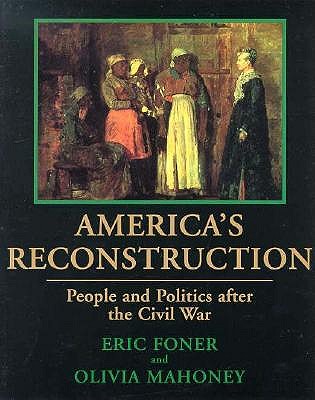

Foner, who is my age, refers to the Civil Rights Movement of the '50s and '60s of the 20th Century as the "Second Period of Reconstruction," as it was a revivified struggle of black people - and their white allies - for the fulfillment of promises of justice and equality to the black people made by both Lincoln and the Congress in the wake of the Civil War. Smith are primary source historians, which means that we who read them "hear" from hundreds of real people whom previous histories have often totally ignored. Foner's book is a much shorter read, but both he and Mr.

I read this book (Forever Free) just as I was completing the volume on the Civil War and Reconstruction by Page Smith (Trial by Fire: A People's History of the Civil War and Reconstruction). Take a few days to read it, or a few weeks. But it is not simply data and dates and numbers. I can't say it is easy to read: it is not light reading, and there is simply a lot to tell. Foner writes it all-the beautiful early events, the alarming portents of change, and the sad, almost predictable human disaster of the end of Reconstruction.Ī solid, well-written book. The African slaves would become African Americans (a thing which was astounding at such a large scale, really-with a swipe of a pen the amendments enabling their civil rights made them joint owners of the American dream).ĭr.

There was a brief moment when the will of the people was such that American Negroes (to use their terms) were seen as possibly full and equal human beings along with their fellow white citizens. It will break your heart, because you will see such promise in the very early years. It is all a mess in a way, just like life, but Foner extracts the threads and lays out the humans who worked through this time of post-Civil War Reconstruction. Some were the people who worked for freedom, and some were those who upheld slavery. You will get in touch with these people, some enslaved, some free, some made free.

You will read about actual people from just a few short years ago, how they felt, how they struggled, what they wanted, what they hoped for. You will not be reading a dusty tome of long-ago lives.


 0 kommentar(er)
0 kommentar(er)
